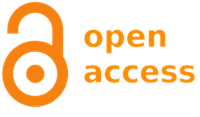The work of the pedagogical coordinator of elementary education I from the critical perspective of education
Abstract
This article aims to analyze the work of the pedagogical coordinator from the critical perspective of education, identifying the possible contributions to the development of pedagogical practices that are based on the classic educational purposes of the school. It is, therefore, a qualitative research, developed from the perspective of historical-dialectical materialism. The resources used to perform the data collection are interviews and observation. The research subjects are six pedagogical coordinators of Elementary School I of the municipal education network of Cruzeiro do Sul - Acre. Thus, in order to better understand the theme, it was essential to seek a theoretical basis in the literature of: Libâneo, Oliveira e Toschi (2003); Marx (2004); and Saviani (2005), among other authors, who contributed to the development of this dialogue. The analyzes performed indicated that the main challenge of the pedagogical coordinator's work is to guide and direct the teacher towards the performance of pedagogical practices that are based on the classic educational purposes of the school, thus guaranteeing the integral development of their students, through critical thinking. and reflective, which allows them to contribute to the transformation of their reality and to break the social inequality to which many are subjected.
Downloads
References
André, M. (2015). Políticas de formação continuada e de inserção à docência no Brasil. Educação Unisinos, 19(1), 34-44. DOI: https://doi.org/10.4013/edu.2015.191.8006
Antunes, R. (2002). Os sentidos do trabalho: ensaio sobre a afirmação e a negação do trabalho. São Paulo: SP, Biotempo Editorial.
Antunes, R. (2004). Sobre o papel do trabalho na transformação do macaco em homem. In R. Antunes (Org.), A dialética do trabalho: escritos de Marx e Engels (p. 13-34). São Paulo, SP: Expressão Popular.
Faria, L. R. A. (2011). O diálogo entre a pedagogia e a didática: da busca contra-hegemônica das orientações educativas das décadas de 1980 e 1990 aos rebatimentos pós-modernos nas recentes produções acadêmicas. Revista Eletrônica Pesquiseduca, 3(5), 56-71.
Frigotto, G. (2006). O enfoque da dialética materialista histórica na pesquisa educacional. In I. Fazenda (Org.), Metodologia da pesquisa educacional (p. 70-90). São Paulo, SP: Cortez.
Frigotto, G. (2010). Educação e formação humana: ajuste neoconservador e alternativa democrática. In G. Frigotto, Educação e a crise do capitalismo real (p. 144-219). São Paulo, SP: Cortez.
Lakatos, E. M., & Marconi, M. A. (2010). Fundamentos de metodologia científica. São Paulo, SP: Atlas.
Libâneo, J. C. (2000). Organização e gestão da escola: teoria e prática. Goiânia, GO: ed. do Autor.
Libâneo, J. C. (2003). Educação: pedagogia e didática. O campo investigativo da pedagogia e da didática no Brasil: esboço histórico e buscas de identidade epistemológica e profissional. In S. G. Pimenta (Org.), Didática e formação de professores: percursos e perspectivas no Brasil e em Portugal (p. 77-129). São Paulo, SP: Cortez.
Libâneo, J. C., Oliveira, J. F., & Toschi, M. S. (2003). Educação escolar: políticas, estrutura e organização. São Paulo, SP: Cortez.
Libâneo, J. C. (2013). Internacionalização das políticas educacionais e repercussões no funcionamento curricular e pedagógico das escolas. In J. C. Libâneo, M. V. R. Suanno, & S. V. Limonta (Orgs.), Qualidade na escola pública: políticas educacionais, didática e formação de professores (p. 47-72). Goiânia, GO: Ceped Publicações.
Ludke, M., & André, M. E. D. A. (1986). Pesquisa em educação: abordagens qualitativas. São Paulo, SP: EPU.
Marx, K. (2004). Manuscritos econômico-filosóficos. São Paulo, SP: Boitempo.
Minayo, M. C. S. (2015). O desafio da pesquisa social. In M. C. S. Minayo, Pesquisa social: teoria, método e criatividade (p. 9-29). Petrópolis, RJ: Vozes.
Oliveira, D. A. (2013). A função social da educação e da escola pública: tensões, desafios e perspectivas. In E. B. Ferreira & D. A. Oliveira (Orgs.), Crise da escola e políticas educativas (p. 237-252). Belo Horizonte, MG: Autentica.
Paulo Netto, J. (2006) Economia política: uma introdução crítica. São Paulo, SP: Cortez.
Paulo Netto, J. (2011). Introdução ao estudo do método de Marx. São Paulo, SP: Expressão Popular.
Pinto, U. A. (2011). Pedagogia escolar: coordenação pedagógica e gestão educacional. São Paulo, SP: Cortez.
Pinto, U. A. (2016). Coordenação pedagógica: área de formação de professores e de atuação do pedagogo escolar nas escolas da educação básica. In S. S. Corrêa, & C. Ferri (Orgs.), Coordenação pedagógica: diferentes abordagens, múltiplas perspectivas (p. 25-44). Itajaí, SC: Univali.
Placco, V. M. N. S. (2003). O coordenador pedagógico no confronto com o cotidiano da escola. In V. M. N. S. Placco, & L. R. Almeida (Orgs.), O coordenador pedagógico e o cotidiano da escola (p. 47-60). São Paulo, SP: Loyola.
Saviani, D. (2005). Pedagogia histórico-crítica: primeiras aproximações. Campinas, SP: Autores Associados.
Saviani, D., & Duarte, N. (2012). Pedagogia histórico-crítica e luta de classes na educação escolar. Campinas, SP: Autores Associados.
Severino, A. J. (2001). Educação, sujeito e história. São Paulo, SP: Olho d’ Água.
Torres, C. M. R. (2017). Educação e emancipação em Karl Marx e Theodor Adorno. Revista HISTEDBR On-Line, 17(4), 1266-1282. DOI: https://doi.org/10.20396/rho.v17i4.8645854
Vieira Pinto, Á. V. (2010). Sete lições sobre educação de adultos. São Paulo, SP: Cortez.

This work is licensed under a Creative Commons Attribution 4.0 International License.
DECLARATION OF ORIGINALITY AND COPYRIGHTS
I declare that this article is original and has not been submitted for publication in any other national or international journal, either in part or in its entirety.
The copyright belongs exclusively to the authors. The licensing rights used by the journal are the Creative Commons Attribution 4.0 (CC BY 4.0) license: sharing (copying and distributing the material in any medium or format) and adaptation (remixing, transforming, and building upon the material thus licensed for any purpose, including commercial purposes) are permitted.
It is recommended that you read this link for more information on the subject: providing credits and references correctly, among other crucial details for the proper use of the licensed material.













































